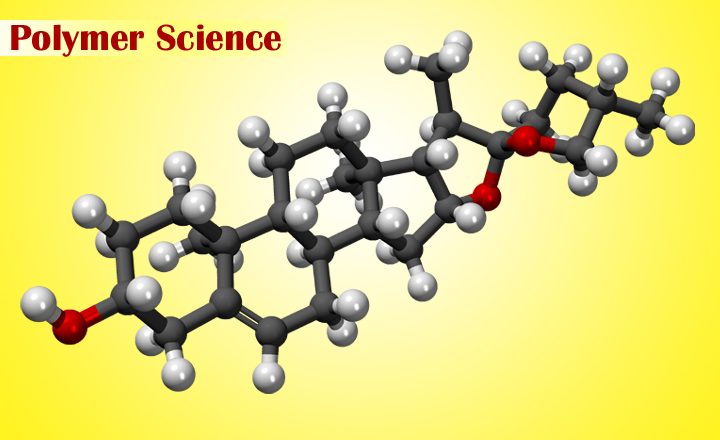Polymer Science: Subjects, Admission Process, Courses Eligibility, Fees, Colleges, Syllabus, Eligibility & Jobs

What is Polymer Science & Engineering?
Polymer Science & Engineering is a fast-moving sector in India. The sector has phenomenal potential including capacity, infrastructure, and skilled workforce. The field has a huge demand for qualified professionals having Bachelor’s or Master’s degrees in engineering with knowledge of subjects like Physics, Chemistry, and Engineering. There are diversified opportunities in the polymer sector for candidates having analytical, logical, and focused mindsets.
It is acknowledged as a fact that polymers play a significant role in fulfilling the basic necessities for daily use and hence the sector is considered as the ‘high Priority’ sector in India. If we go back to 1957, the Indian plastics industry made a remarkable beginning in the year with the production of polystyrene. Since then, the industry has made significant progress and has grown manifolds. The industry is spread all across the country consisting of 2,000 exporters, 30,000+ processing units, and provides employment to about 4 million people in the country.
So, what is Polymer Science? For your understanding, it is a branch of Material Science which is also known as Macromolecular Science. It is a science which deals with polymers – either natural or synthetic. Polymer Science is further classified into Polymer Chemistry, Polymer Physics, and Polymer Characterization.
The course of Polymer Science includes detailed study, design, and modification of polymers and the various technologies that are used in it. The course emphasizes majorly on the sub-branches of chemistry – organic, inorganic, and physical.
Contents
- 1 What is Polymer Science & Engineering?
- 2 What role a Polymer Engineer Plays?
- 3 Key skills required for Polymer Engineering
- 4 Polymer Science & Engineering Courses and Eligibility
- 5 Entrance Examstoget admission in Polymer Science & Engineering Courses
- 6 Top Colleges Offering Polymer Engineering:
- 7 Few Other Prominent Recruiters are:
- 8 Job profiles and Salary
- 9 Conclusion:
What role a Polymer Engineer Plays?
If you pursue this career option, as a Polymer engineer you will be working in a lab and supervising the production process and maintenance of plastic and other polymer products. You will be responsible for the development of new polymers, equipment design for polymer processing, project engineering, and management of the process. In this career, apart from development, testing of plastics or related materials also falls under the key responsibilities of Polymer Engineer.
Let’s discuss what are the important skills you must need to build a successful career in polymer science and engineering.
Key skills required for Polymer Engineering
If you aspire to build a career in Polymer Engineering, you should possess the following must-have skills:
| Analytical and Rational Thinking | Problem-Solving Skills | Scientific Bent of Mind |
| Communication Skills | Computer Skills | Good Observation Skills |
| Ability to Work With Team | Knowledge of Chemistry | Mathematical Skills |
The variety of skills and qualities help you gaining more confidence and making you more competitive in the job market. Through courses in Polymer Science & Engineering, you learn to acquire the necessary skills. In this article further, we will now discuss the Polymer Engineering courses at undergraduate, postgraduate, and doctorate levels, eligibility criteria, and admission process for these courses.
Polymer Science & Engineering Courses and Eligibility
| Programmes | Eligibility | Duration |
| B.E. Polymer Science and Chemical Technology
|
Aspiring candidates must have passed 10+2 from a recognized School/college with an aggregate of 60% marks in Physics, Chemistry, Mathematics, and English as main subjects.
Additionally, the candidate must clear the JEE Main entrance exam. |
4 years |
| B.E. Polymer Technology | Aspiring candidates must have passed 10+2with Physics, Chemistry and Maths from a recognized school board. |
4 years |
| B. Tech Polymer Science and Technology | 10+2 with 50% minimum aggregate score with Physics, Chemistry and Maths from a recognized school board. |
4 years |
| M.TechPolymerScience &Technology
|
Aspiring candidates need to have completed a B.Tech./ B.E. in Polymer Engineering, Textile, Chemical Engineering, Material Science, Petroleum Engineering, Mechanical Engineering, Polymer Technology or M.Sc. in Chemistry and Physics from a recognized university.
The minimum percentage required is a minimum aggregate of 50% in or equivalent CGPA in graduation. M.Tech. in Polymer Technology admission is based on entrance exams (GATE, AP PGECET, TS PGECET, VITMEE) conducted at national as well as state levels. |
4 years |
| M.E. Polymer Science and Technology | Aspiring students should have passed a B.E./B.Tech. or equivalent exam from a recognized university board. |
2 years |
| Ph. D Polymer Science and Technology | All postgraduates are eligible for Ph. D Polymer Science and Technology course.
Minimum qualifying marks may vary as per the institutes. |
3-5 years |
Entrance Examstoget admission in Polymer Science & Engineering Courses
Below are some of the Polymer Engineering entrance exams conducted by universities to get admission in UG and PG courses:
- ICAR AIEEA – Indian Council of Agricultural Research (ICAR) conducts All India Entrance Examination for Admission to UG, PG, and Ph.D. Courses. It is a national-level exam. The age of the student should be minimum of 16 years old and 10+2 passed with 3 subjects out of Mathematics, Physics, Chemistry, and Biology.
- BITSAT: Birla Institute of Technology and Science (BITS) Pilani. Candidates can appear for this exam to get admission to undergraduate courses in over 6 colleges of BITS all over India. The candidate should have a minimum of 75% marks in Physics, Chemistry, Biology, and Mathematics if PCMB student.
- VITEEE: Vellore Institute of Technology Engineering Entrance Exam. The exam gives admission to undergraduate courses over 5 colleges of VIT. The student should have a minimum of 50% marks in Physics, Chemistry, and Mathematics/Biology.
- CUSAT CAT: CUSAT – Cochin University of Science and Technology. This is an entrance exam to get admission in undergraduate and postgraduate courses in the university. The student should have 60% aggregate marks in Physics, Chemistry, and Mathematics/Biology.
- NMIMS: NarseeMonjee Institute of Management Studies. This entrance exam is conducted to get admission in undergraduate and integrated courses. The student should have 50% aggregate marks in Physics, Chemistry, and Mathematics/Biology.
- UGAT/ PGAT: Undergraduate Admission Test (UGAT) and Postgraduate Admission Test (PGAT) are the entrance exams conducted by the University of Allahabad for giving admission into undergraduate and postgraduate engineering courses respectively.
- MHT CET: Maharashtra Common Entrance Test. The exam gives admission to UG Programs to all government colleges in India. The student should have a minimum of 50% aggregate marks in Physics, Chemistry, and Mathematics/Biology. It is a state-level exam.
- GATE – Graduate Aptitude Test in Engineering. This entrance exam is conducted in getting admission to PG and Ph.D. courses in IISc and 7 IITs. The student should have a minimum of 50% aggregate marks in Physics, Chemistry, and Mathematics/Biology. It is a national-level exam.
- GRE- Graduate Record Examinations. GRE is for getting admission into M.S. (Master of Science) postgraduate course, offered by universities abroad.
Top Colleges Offering Polymer Engineering:
| College | Course | Exam |
| MSU Baroda – Maharaja Sayajirao University of Baroda | ME Polymer Technology | GATE |
| DTU Delhi – Delhi Technological University | M.Tech Polymer Technology | GATE |
| IIT Delhi – Indian Institute of Technology | M.Tech Polymer Science and Technology | GATE |
| ICT Mumbai – Institute of Chemical Technology | M.Tech Polymer Engineering and Technology | GATE |
| JSS Science and Technology University, Mysuru | BE Polymer Science and Technology | COMEDK UGET, KCET |
| Tezpur University, Tezpur | M.Tech Polymer Science and Technology | GATE |
| University College of Science, Technology and Agriculture, Kolkata | B.Tech Polymer Science and Technology | WBJEE |
| University College of Engineering, Thodupuzha | B.Tech Polymer Engineering | KEAM |
| B. S. Abdur Rahman Crescent Engineering College | B.Tech Polymer Engineering | CIEAT |
| Visvesvaraya Technological University- VTU | B.TechPolymer Engineering | JEE Mains |
As we had discussed earlier in the article, the increasing use of plastics and other polymer substances in almost all industries is immensely intensifying the growth of polymer science. The polymer industry has seen an exponential surge in job opportunities in the field in recent years. There are enormous job opportunities for those who hold a qualification in the field of polymer science and technology in both the public and private sectors. In the field of R&D, there are several opportunities that exist.
Scope & Jobs
The prospects of Polymer Engineering can be seen in industries such as:
- Petroleum Industries
- Pharmaceuticals
- Ministry of Petroleum & Natural Gas, Oil India Laboratories, Petrochemicals Engineering Plants
- Chemical Industries
- Oil & Natural Gas Commission (ONGC)
- Windmoller & Holscher
- Companies producing polymer-based products
- Packaging
- Sports
- Central Institute of Plastic Engineering & Technology
- Perfumes and Preservatives
- Defense Research & Development Organization
- Brahmaputra Cracker & Polymer Limited (BCPL)
- Colleges and Universities
- Ceat Limited
- Allied Solutions India Pvt. Ltd.
- Kraton Polymers LLC, Polymer Technologies Inc
- Apollo Tyres Limited
Few Other Prominent Recruiters are:
- Tata Chemicals Ltd.
- Oil and Natural Gas Corporation
- Finolex Industries
- GAIL India Limited
- Reliance Industries
- Aarti Industries Limited
- BASF Construction Chemical India Pvt. Ltd.
- Gujarat Fluorochemicals Ltd.
- Haldia Petrochemicals Ltd.
- Linde India Ltd.
- Solar Industries India Ltd.
- United Phosphorus Ltd.
- Research Centres
Job profiles and Salary
Generally, Polymer Manufacturing Industries hire Polymer Engineers but there are many other job profiles with diverse roles available in the polymer science sector. The Polymer Engineers can work in these profiles in both Public & Private Sector Organizations. The common job profile of Polymer Engineers are as follows:
|
Research Scientist |
Production Planner |
|
R&D Executive |
Polymer Scientist |
|
Design Engineer |
Quality Engineers |
|
Corporate Sales Manager |
Production Technologist |
|
Mold Designers |
Production Engineers |
|
Lecturers in Engineering Colleges |
Sales & Marketing Executives |
For polymer engineering graduates, this is indeed a rewarding career field. Both renowned organizations in the public and private sectors frequently recruit candidates on a big scale and offer good salary packages. On the basis of some salary survey data collected from employers and employees directly in India, it has been observed that the average polymer engineer’s gross salary in India is around INR 8 lakhs. An entry-level polymer engineer (1-3 years of experience) earns an average salary of INR 6 lakhs. On the other end, a senior-level polymer engineer (8+years of experience) earns an average salary of INR 10 lakhs.
Conclusion:
The industry is growing at a fast pace as the demand for polymer products is increasing and innovations are being introduced every now and then. So, if you are passionate about this field, there are endless opportunities in the market. In India, the course in polymer science & engineering is offered by various universities at every level – undergraduate, postgraduate, or doctorate. The aspiring candidates can enroll themselves in any of the relevant courses as per their interest and acquire knowledge and the right skills that are mandatory to build a career in this field. Every industry has vast scope for graduates in polymer science in India. An excellent career with good remuneration is waiting for you.
